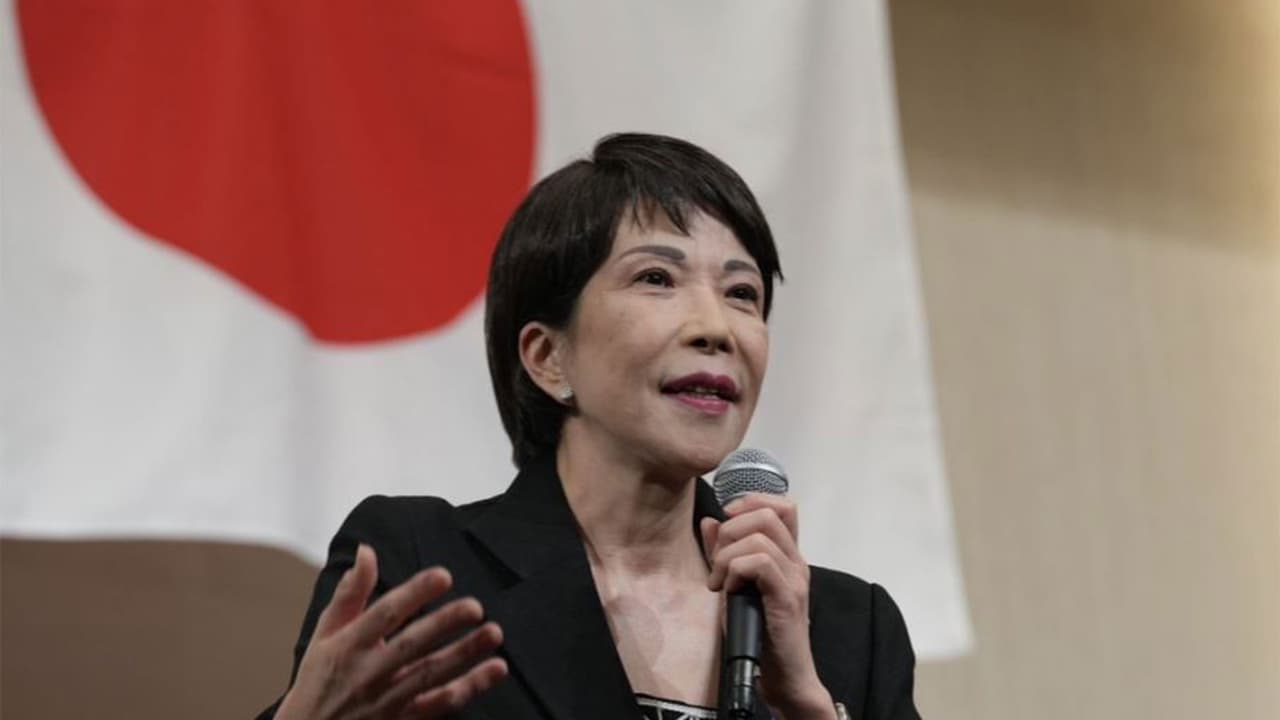China urged its students to reconsider studying in Japan, citing safety risks after Japanese PM Sanae Takaichi said Japan could use its self-defence force if China attacked Taiwan, drawing a sharp diplomatic and media backlash from Beijing.
Beijing on Sunday urged its students to reconsider studying in Japan, citing what it described as an unstable security environment in the country, official Chinese media reported.
This followed remarks by Japanese new Prime Minister Sanae Takaichi recent remarks in parliament on Taiwan, which drew strong criticism by China as “reckless rhetoric”. China’s Education Ministry said that safety risks for Chinese citizens in Japan have risen, citing Japan’s recent poor public security, a surge in crimes targeting Chinese citizens, and the overall unfavourable study environment as per Xinhua.
Takaichi’s ‘Survival-Threatening Situation’ Remarks
Earlier this month, Takaichi said Japan could respond with its own self-defence force if China attacked Taiwan.. She said a Taiwan emergency involving the use of military force could pose a “survival-threatening situation” for Japan under its security legislation. The law, if certain conditions are met, allows Japan to exercise the right of collective self-defence. As per a Kyodo report, she apparently acknowledged her government could, depending on the circumstances, authorise the Self-Defence Forces to take action if China were to impose a maritime blockade on Taiwan or engage in other coercive measures, even if Japan is not directly attacked.
Diplomatic Backlash and Protests
In 2021, former Prime Minister Taro Aso said Japan “would have to defend Taiwan” with the United States if the island is invaded by mainland China, triggering a strong backlash from Beijing. Taiwan was under Japanese colonial rule for 50 years through 1945.
On Friday, China also urged its citizens to avoid visiting Japan as an apparent retaliatory measure after Takaichi’s remarks. China summoned the Japanese ambassador in Beijing and demanded that Takaichi retract her remarks, the Chinese Foreign Ministry said Friday, Japan’s Foreign Ministry said it lodged a similar protest the same day over a recent social media post by a Chinese diplomat responding to the remark, Kyodo reported.
As per a report in the Chinese Global Times, Chinese Foreign Ministry Spokesperson Mao Ning today posted in English and Japanese on social platform X, quoting the Taiwan-related content from the 1972 China-Japan Joint Communique, reminding Japan that “irrespective of which administration is in office, Japan should honor its commitments.”
Chinese State Media Issues Stern Warnings
An editorial in Xinhua today warned that Japan risked turning its entire country into a battlefield if it intervened militarily in the Taiwan Strait. “This is not merely reckless rhetoric. It is profoundly destabilizing. By dragging the Taiwan question into Japan’s already-contested security framework, Takaichi is deliberately blurring the boundary between defensive policy and outright militaristic adventurism,” it said.
The editorial said, “It is a reckless gambit that ignores Japan’s constitutional limits, disregards public sentiment, and gambles with the security of the entire region.”
Similarly, an opinion piece in the Global Times said that the Japanese side must not misjudge the stern warning issued by China. It said that Takaichi’s remarks regarding the island of Taiwan are “extremely egregious”. “As the sitting Japanese prime minister, she openly challenged the one-China principle, seriously infringed upon China’s sovereignty and territorial integrity, and deliberately undermined the post-World War II (WWII) international order. This not only crossed the bottom line of China-Japan relations, but also subverted historical justice and undermined the global environment for peace and development,” it said.
Tensions Rise in Disputed Waters
Meanwhile, today a Chinese coastguard vessel formation passed through the waters surrounding the disputed Diaoyu Islands, known as the Senkaku Islands in Japan. The coastguard in a statement on social media that the operation was “a rights-protection patrol conducted in accordance with the law”.
The Geopolitical Context of Taiwan
Beijing views Taiwan as part of China. Most countries, including Japan and the United States, do not recognise Taiwan as an independent country. The US has a policy, outlined in the Taiwan Relations Act, that requires it to help Taiwan defend itself. Washington is opposed to any attempt to take the self-ruled island by force and is committed to supplying it with weapons. (ANI)
(Except for the headline, this story has not been edited by Asianet Newsable English staff and is published from a syndicated feed.)
